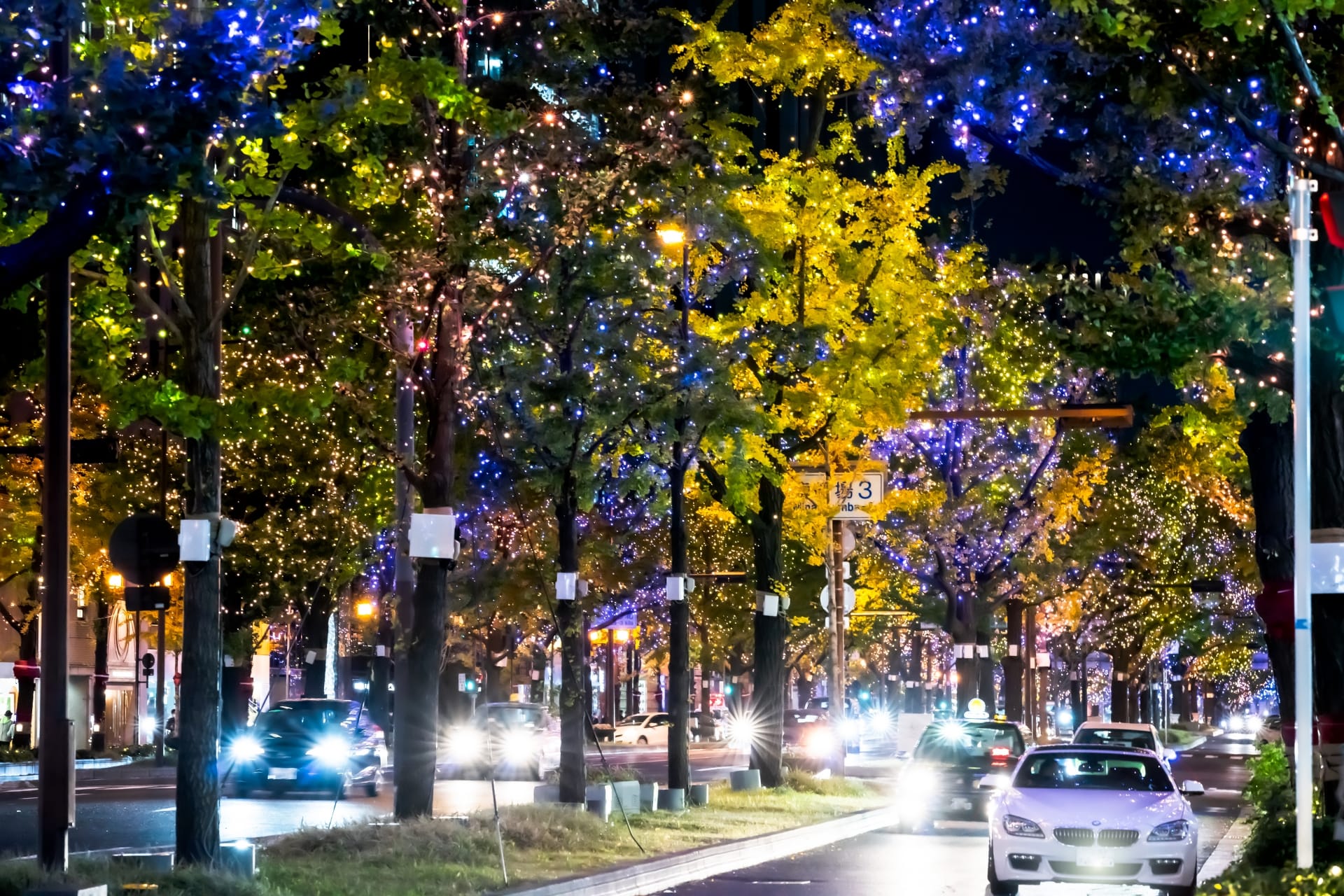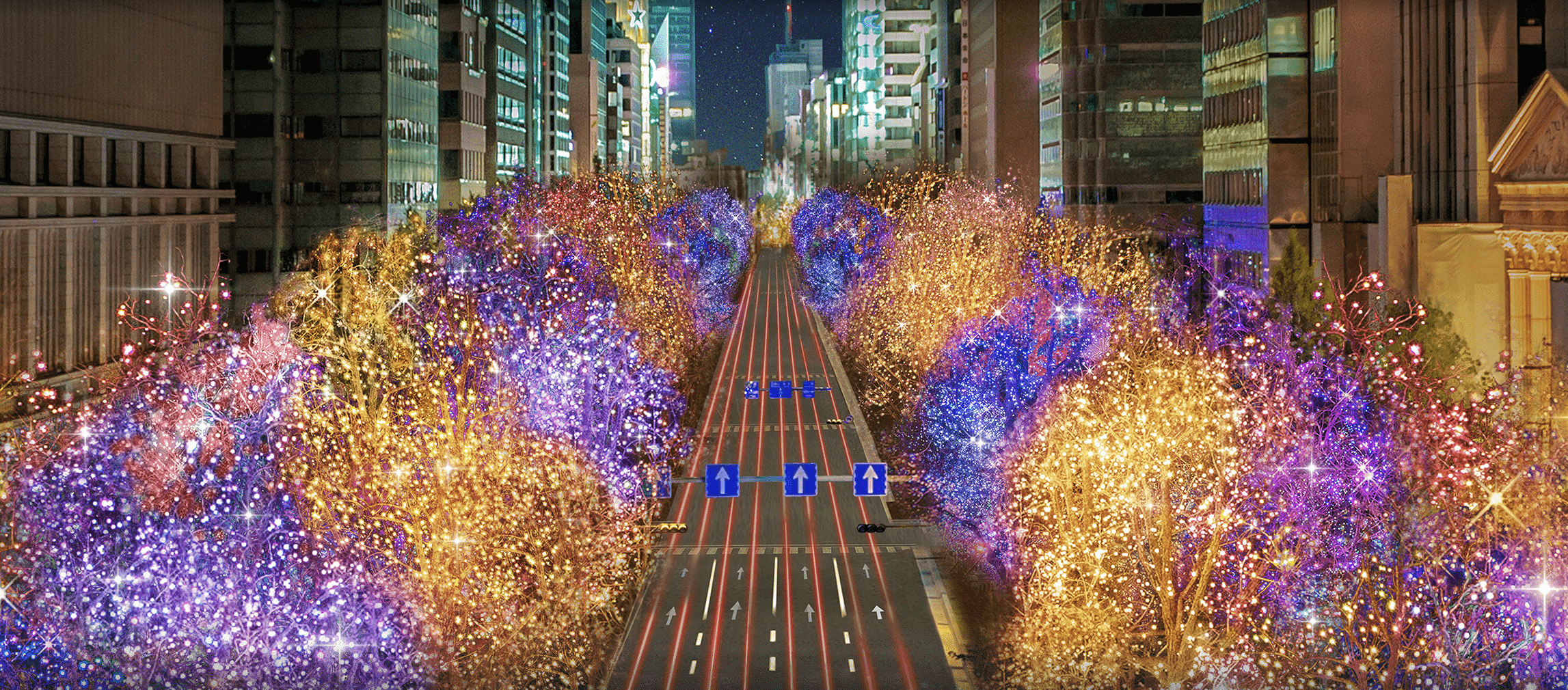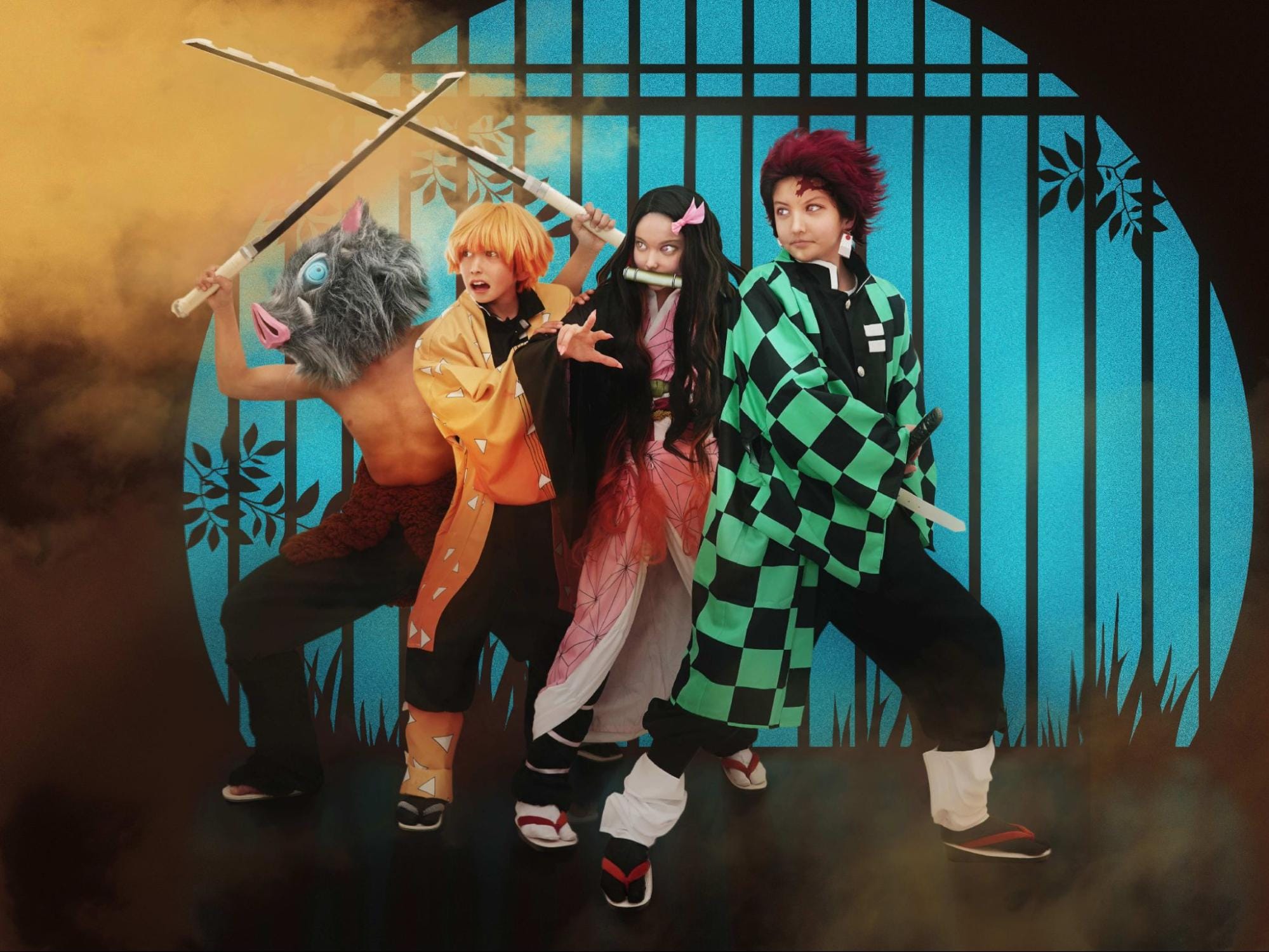Winter in Osaka 2026: Illuminated Nights and Savory Delights
Japan offers many cities where you can enjoy beautiful winter streetscapes and delicious Japanese cuisine. Osaka is a prime example, with many tourist spots beautifully decorated with illuminations and special winter delicacies available throughout the city. Every winter, I too explore Osaka's streets, enjoying both the tourist attractions and the city's exceptional cuisine.
I've updated this article to include my recommended spots from this year and the latest winter destinations for 2026.
Recently, tours guided by local residents have been gaining popularity in Japanese cities. Among these, Magical Trip's tours are particularly well-received. In 2024, their "Tokyo Bar Hopping Night Tour in Shinjuku" was ranked number one among all tours on TripAdvisor.

Magical Trip offers many popular tours in Osaka as well. Their "Osaka Local Foodie Tour in Dotonbori and Shinsekai" has received excellent reviews for allowing visitors to enjoy Osaka's must-try delicacies with guidance from local guides.
The "Kuromon Market Walking Street Food Tour in Osaka," which lets you explore local markets with knowledgeable guides, is also popular. Places that might be challenging for tourists to fully appreciate on their own become much more accessible and enjoyable when exploring with locals.
Make the most of your winter visit to Osaka by taking advantage of these tours!
Introduction
In this article, I'll introduce you to the charms of Osaka in winter that I've experienced and grown to love over the past 10 years.
From fantastical events like the Festival of Lights and Osaka Castle Illuminage to traditional celebrations like New Year's shrine visits and Toka Ebisu, and winter delicacies like oden and doteyaki. I hope this guide will help you fully enjoy Osaka's winter.
I'll also share tips on staying warm and things to be aware of during the year-end and New Year holidays, based on my personal experiences. While Osaka's winter isn't as harsh as Tokyo's, it's important not to let your guard down. I especially struggled with the temperature difference between indoors and outdoors during my first winter here.
I hope this article will help travelers enjoy Osaka's winter comfortably.
If you're interested in learning about the whole Osaka area year-round, be sure to also take a look at our Osaka Guide.
Table of Contents
・Winter Festivals and Events in Osaka
・Can You Enjoy Nature in Osaka During Winter?
・Winter Cuisine in Osaka
・Preparation and Precautions for Enjoying Winter in Osaka
・Two Recommended Tours to Fully Experience Osaka
If you're interested in "Osaka-ish Night Out in Winter", Check the article below.
・Ultimate Guide to Osaka Nightlife: Top Districts, Bars, foods and Experiences
If you're interested in "Holiday Shopping in Osaka", Check the article below.
・10 Best Shopping Places in Osaka: Cheap Shopping Spots, Vintage Shops, Outlet Mall etc
Winter Festivals and Events in Osaka
Winter in Osaka is adorned with various events, from fantastic light festivals to traditional New Year celebrations. I'll introduce you to the fascinating festivals and events unique to Osaka's winter that I've experienced over the past 10 years.
Osaka Festival of Lights (Hikari no Kyoen)
The Osaka Festival of Lights (Hikari no Kyoen) is a collective term for winter illumination events held at various locations throughout Osaka City. The main events are the Midosuji Illumination and the Nakanoshima Illumination, each with its own unique charm.
The Midosuji Illumination is typically held from November to December. The sight of the approximately 4-kilometer-long ginkgo tree-lined street illuminated by warm LED lights is breathtaking. Walking along Midosuji at night feels like you're walking through a tunnel of light.
On the other hand, the Nakanoshima Illumination is held for about 10 days in December, but its brevity makes it all the more popular. Centered around Nakanoshima Park, the walkways along the Okawa River and bridges are illuminated with fantastical lights.
The reflection of lights on the river's surface is beautiful, creating a romantic atmosphere. I visit every year with friends and family, enjoying it as a winter tradition in Osaka. Even on a cold winter night, this beautiful sight is sure to warm your heart.
Website: https://www.hikari-kyoen.com/
If you're interested in "Beautiful Night View", Check the article below.
・12 Best Osaka Night View Spots 2026: Recommended Beautiful Scenery at Night
Osaka Castle Illuminage
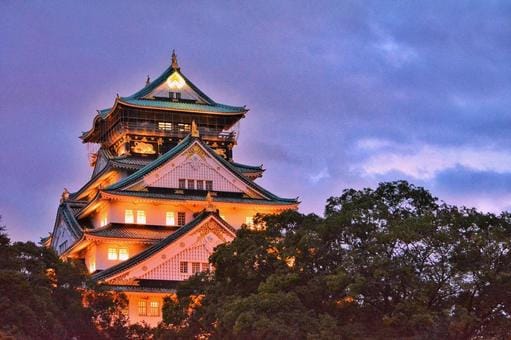
Osaka Castle Illuminage is a large-scale illumination event that lights up the entire Osaka Castle Park. Held from mid-November to mid-February, it has become a winter tradition that I look forward to every year.
The charm of this event lies not just in enjoying the lights, but in experiencing a fantastical world created by state-of-the-art lighting techniques against the backdrop of the historical Osaka Castle.
Various programs are available, including projection mapping and light and music shows, offering new discoveries every year.
This is a highly recommended winter event in Osaka, offering a unique experience where history and cutting-edge technology converge.
For more about this spot, check out our guide to Osaka Castle.
Website: https://x.gd/mEdCQ
More Detailed Information About "Highlights of Osaka Castle"
・Osaka Jo Castle (Osaka Castle) w/Access, Ticket, Admission fee
Hatsumode (First Shrine Visit of the New Year)

Hatsumode is a traditional Japanese New Year celebration where many people visit shrines from January 1st to 3rd. During this period, the entire city of Osaka is enveloped in a festive atmosphere, full of energy.
While there are many famous shrines and temples in Osaka City, Sumiyoshi Taisha and Osaka Tenmangu are particularly popular. I make it a tradition to visit one of these shrines for Hatsumode every year.
Sumiyoshi Taisha is one of the oldest shrines in Osaka, with a history spanning over 1800 years. During Hatsumode, many people line up on the specially set up worship path in the shrine grounds, offering their New Year prayers in a solemn atmosphere.
On the other hand, Osaka Tenmangu enshrines Sugawara no Michizane, known as the god of learning. Many worshippers, especially students and exam-takers, visit to pray for academic success.
Hatsumode is more than just a shrine visit. By visiting with family and friends, carrying new year's resolutions in your heart, you can feel the start of the new year and hold new hopes.
If you're visiting Osaka at the beginning of the year, I encourage you to experience the atmosphere of Hatsumode at a shrine.
Toka Ebisu at Imamiya Ebisu Shrine
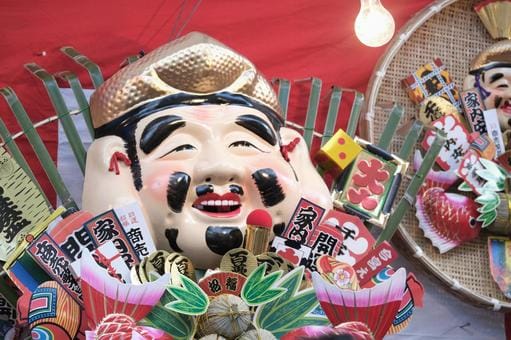
Toka Ebisu at Imamiya Ebisu Shrine is a festival held from January 9th to 11th, representing the New Year in Osaka. Affectionately known as "Ebessan" by locals, this shrine festival is famous for its blessings of prosperity in business and attracts many worshippers every year.
I still remember the excitement I felt when I first experienced Toka Ebisu. The shrine's approach was overflowing with people, and the bustle and energy of the food stalls made it feel unlike the middle of winter.
The highlight of this festival is the lucky charm called "Fukuzasa". Worshippers seek these Fukuzasa, praying for business prosperity and family safety. People line up from early morning to get these Fukuzasa, showing their popularity.
I once lined up from midnight with a friend to get a Fukuzasa, and that experience remains a strong winter memory of Osaka in my heart.
Fukuzasa are bamboo branches decorated with various lucky charms. Each charm, such as sea bream, gold coins, or treasure ships, has its own meaning, and you can choose based on your wishes.
The energy of people praying for business prosperity, the bustle of food stalls, and the unique atmosphere created by traditional rituals offer an experience unique to Osaka that can't be found elsewhere.
Through this festival, I hope you can feel the energy of Osaka's people and their heart that cherishes tradition.
Website: https://www.imamiya-ebisu.jp/english
More Detailed Information About "Events & Festivals in January"
・Osaka in January 2026: Highlights, Events & Festivals
If you're interested in "Temples & Shrines in Osaka", Check the article below.
・Osaka's Must-see Temples 2026: Famous Temples & Best Shrines List w/map
Can You Enjoy Nature in Osaka During Winter?

You might feel that Osaka's winter is somewhat lacking when it comes to enjoying natural scenery compared to other seasons.
First, in neighboring Kyoto, there are days when snow accumulates, allowing you to enjoy the snowy scenery of temples and shrines.
The sight of Kinkaku-ji or Kiyomizu-dera dressed in snow is truly picturesque. It's popular as a day trip to enjoy winter nature, as it's only about an hour by train from Osaka.
However, in Osaka, especially in Osaka City, snow rarely accumulates. In my 10 years of living here, I've only seen snow accumulation a handful of times.
Therefore, it's true that there are fewer natural attractions like snowy landscapes in Osaka during winter. When I first experienced winter here, I was a bit disappointed as I had been expecting snow.
But that doesn't mean Osaka lacks charm. Rather, Osaka has many attractions that can be enjoyed regardless of the season. For example, Osaka's bustling areas like Dotonbori and Shinsekai are lively even in winter.
Also, Universal Studios Japan (USJ) holds winter-limited events. Attractions and shows themed around Christmas and New Year make you feel the winter season in a different way from natural scenery.
Furthermore, Osaka's winter is rich in indoor activities. The planetarium at Osaka Science Museum is perfect for enjoying the starry sky.
Winter is also a recommended season for visiting art museums in Osaka. In addition to permanent exhibitions, the National Museum of Art, Osaka and the Osaka City Museum of Fine Arts often hold special winter exhibitions. Spending time appreciating art while escaping the cold outside air is one way to enjoy winter.
Indeed, Osaka's winter may lack natural attractions like snowy landscapes. However, there are endless ways to enjoy it, including the city's unique charms, indoor activities, and short trips to nearby Kyoto.
I hope you'll use this article as a reference to fully enjoy Osaka during the winter season.
If you're interested in "Enjoying Dotonbori", Check the article below.
・Dotonbori Ultimate Guide: Must-Try Foods and Way to Find Restaurants Truly Beloved by Locals
If you're interested in "Sightseeing in Kyoto", Check the article below.
・Kyoto vs Osaka: Your Essential Guide to Japan's Contrasting Cities
Winter Cuisine in Osaka
Here, I'll introduce you to two particularly popular winter dishes: Kansai-style oden and doteyaki. I believe these dishes are the best choices for warming your body on cold winter nights and fully enjoying Osaka's food culture.
Kansai-style Oden
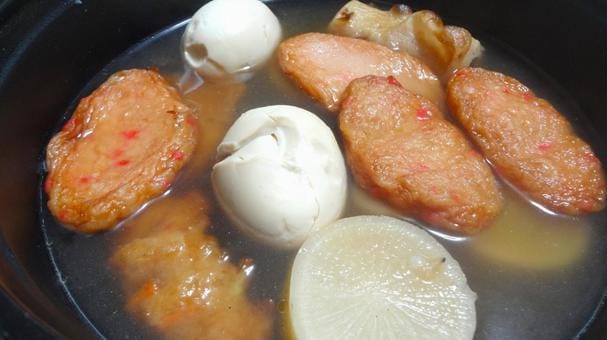
Kansai-style oden is one of the representative winter tastes of Osaka. Unlike the Kanto-style oden found in Tokyo and other areas, Kansai-style oden is characterized by its broth that enhances the flavors of the ingredients.
The broth in Kansai-style oden is often a light flavor based on kombu and bonito flakes, carefully prepared not to overpower the original taste of the ingredients.
I find it particularly impressive how ingredients with subtle flavors like daikon radish and konnyaku absorb the umami of the broth, resulting in an exceptional taste.
What I love to enjoy with oden is sake or beer. Especially, the combination of chilled sake and oden is exquisite. The temperature difference between the piping hot oden and cold sake further enhances the flavors.
Also, draft beer and oden is a classic combination, with the bitterness of the beer accentuating the umami of the oden.
When you visit Osaka, I highly recommend enjoying hot Kansai-style oden at an izakaya, mingling with the locals.
More Detailed Information About "Recommended Izakaya in Osaka"
・10 Best Izakaya & Bars in Osaka! Recommended Restaurant List
Doteyaki
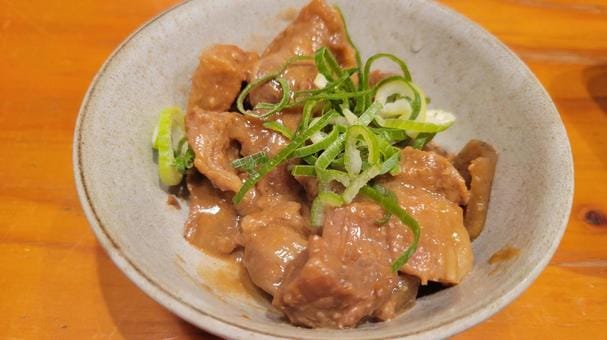
Doteyaki is a traditional winter delicacy in Osaka, made by stewing beef tendon in miso.
Usually, beef tendon is a tough and sinewy part, but through stewing, it becomes surprisingly tender. The tenderness, where it falls apart with just a light push of chopsticks, is truly exquisite.
Doteyaki is particularly popular as an accompaniment to alcohol and is served in many izakayas and bars.
While it's delicious on its own, it's also popular to eat with white spring onions. The fresh spiciness of the spring onions nicely balances the richness of the doteyaki.
You can also enjoy variations that include konnyaku. The addition of konnyaku's texture makes for an even more enjoyable eating experience.
When it comes to drinks that pair well with doteyaki, draft beer is my top choice. The temperature difference between the cold beer and hot doteyaki further enhances the flavors.
When you visit Osaka in winter, I highly recommend trying this Osaka specialty, doteyaki.
If you're interested in a spot called "Osaka's Kitchen", Check the article below.
・Kuromon Market Guide: The Ultimate Guide to Osaka's Kitchen
More Detailed Information About "Osaka's Local Foods"
・2026 Osaka's Soul Food Guide: Must-Try Dishes in Japan's Kitchen
Preparation and Precautions for Enjoying Winter in Osaka
To fully enjoy Osaka's winter, proper preparation and caution are necessary. Based on my 10 years of experience living here, I'll introduce in detail the cold weather preparations and year-end and New Year's business hour checks that I find particularly important.
Cold Weather Preparations
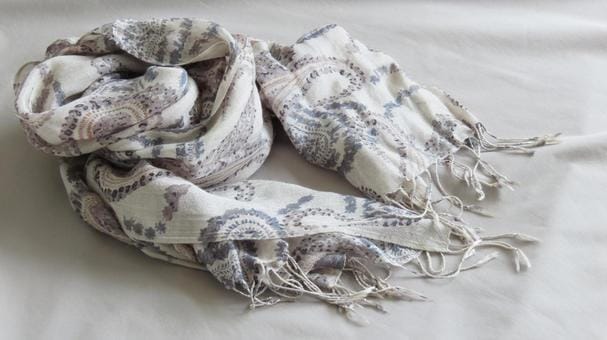
While Osaka's winter isn't as harsh as Tokyo's or Hokkaido's, proper cold weather preparations are essential. The average temperature from December to February is around 6 to 12°C, but the wind chill can make it feel even colder.
Layering is the most effective cold weather strategy. I recommend combining thin thermal underwear with a warm coat. This allows you to flexibly adapt to temperature differences between indoors and outdoors.
Don't forget to bring accessories like gloves, scarves, and hats. These small items become surprisingly important, especially when sightseeing for long hours. I always carry gloves and a neck warmer with me.
A characteristic of Osaka's winter is the significant temperature difference between outdoors and indoors. For example, when you enter a warm building from the cold outdoors, you may feel a sudden temperature change. Therefore, it's important to choose clothes that are easy to put on and take off.
Lastly, choosing appropriate shoes is crucial. By selecting comfortable shoes with good insulation, you can stay comfortable even during long hours of sightseeing.
If you keep these cold weather preparations in mind, you'll be able to comfortably enjoy Osaka's winter. Don't let the cold defeat you, and fully savor the charms of the city.
If you want to get seasonal fashion items locally, check the article below.
・10 Best Shopping Places in Osaka: Cheap Shopping Spots, Vintage Shops, Outlet Mall etc
Checking Business Hours During Year-End and New Year Holidays
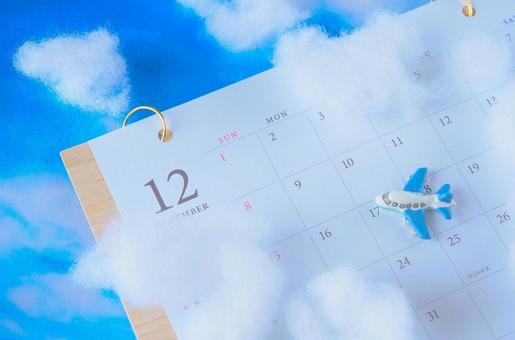
During the year-end and New Year holidays in Osaka, many tourist attractions and commercial facilities have different business hours than usual. From December 29th to around January 3rd, many places are closed or have changed business hours, so it's very important to check in advance.
First, museums and art galleries are often closed during the year-end and New Year holidays, so it's necessary to check their official websites. For example, the Osaka City Museum of Fine Arts and the National Museum of Art, Osaka are closed for several days during this period.
On the other hand, shrines and temples bustling with New Year's visitors may be open 24 hours. At major shrines in Osaka like Sumiyoshi Taisha and Shitennoji, special prayers and events may be held during the New Year holidays.
I recommend gathering information in advance so you don't miss out on these special experiences.
Restaurants may require reservations or be closed during the year-end and New Year holidays, so advance checks are essential. Especially popular restaurants become difficult to book during this period.
My favorite sushi restaurant only accepts reservations during the year-end and New Year holidays, so I make sure to book early every year. Also, it's worth checking as some restaurants offer special menus limited to the year-end and New Year holidays.
Don't forget to check the operation information for public transportation, as they often run on special schedules during the year-end and New Year holidays. Especially from New Year's Eve to New Year's Day, some lines operate all night.
While this is convenient for going to shrines for New Year's prayers, be aware that the schedule is very different from normal times. Every year, I check the year-end and New Year operation information on the official website of Osaka Metro (Osaka City's subway).
Lastly, convenience stores and some restaurants are often open year-round, but their hours may be shortened. It's reassuring to know the locations of nearby convenience stores for sudden shopping or meal needs.
Two Recommended Tours to Fully Experience Osaka
Osaka is known as "Japan's Kitchen," a culinary capital. Let us introduce you to two food tours by MagicalTrip where local guides will take you to beloved establishments frequented by both tourists and locals alike.
Osaka Local Foodie Tour in Dotonbori and Shinsekai
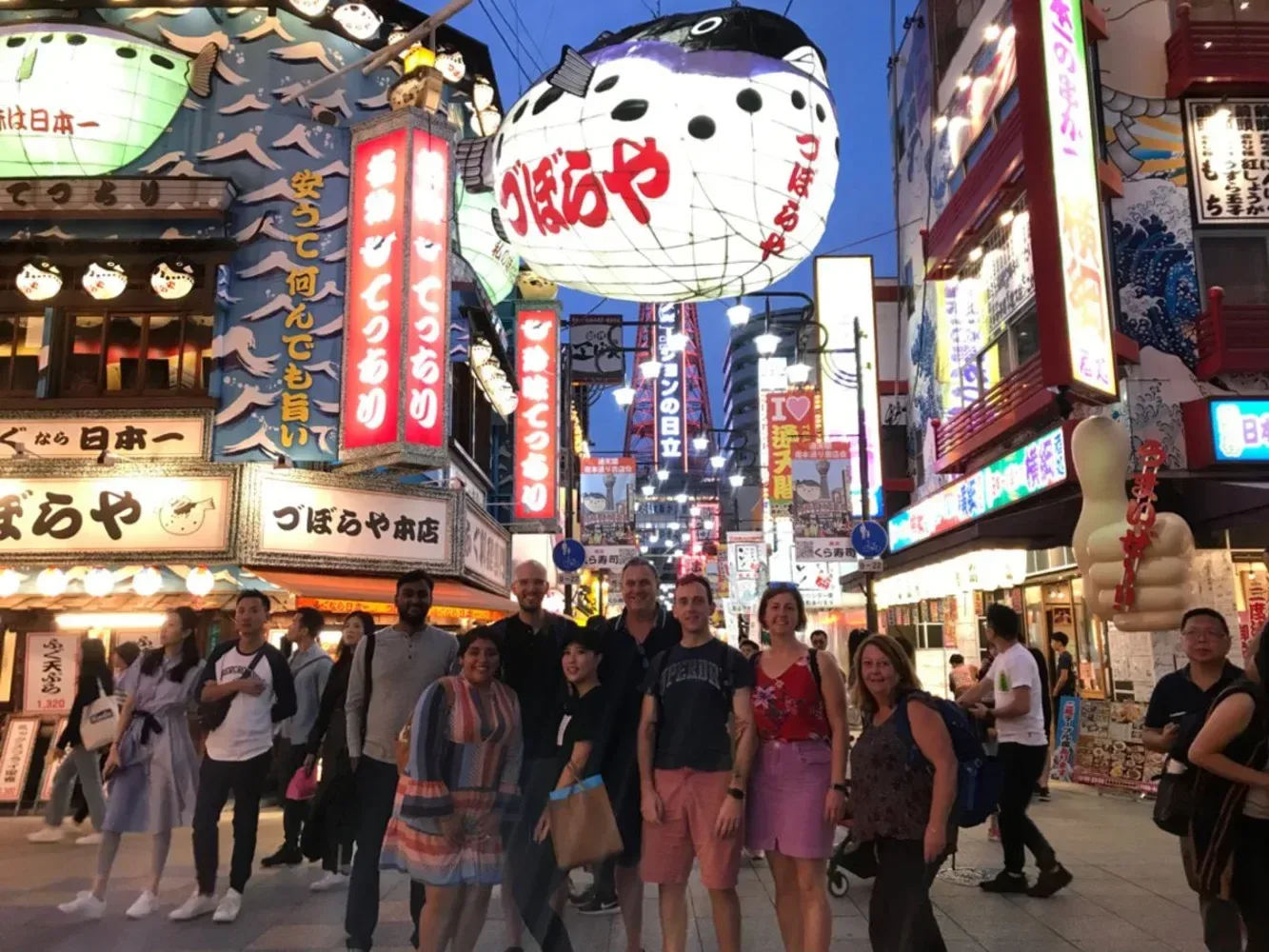
This 3-hour food tour costs $93.44 per person and allows you to taste 8 different Osaka specialties. You can enjoy local favorites like takoyaki, okonomiyaki, and kushikatsu at spots recommended by local guides.
Three drinks are included in the price. The tour takes you from Shinsekai to Dotonbori, visiting not only tourist spots but also hidden alleys and temples known only to locals. English-speaking local guides provide detailed explanations about the history and culture of each location.
This popular tour has been experienced by over 4,700 people and is enjoyable for all age groups. Vegetarian options are available with advance notice, but gluten-free accommodations cannot be provided. The tour meets at Imamiya-Ebisu Station and ends at Namba Station, with free cancellation up to 24 hours before. Please note that participants more than 5 minutes late will not be able to join the tour.
Details here: Osaka Local Foodie Tour in Dotonbori and Shinsekai
Kuromon Market Walking Street Food Tour in Osaka
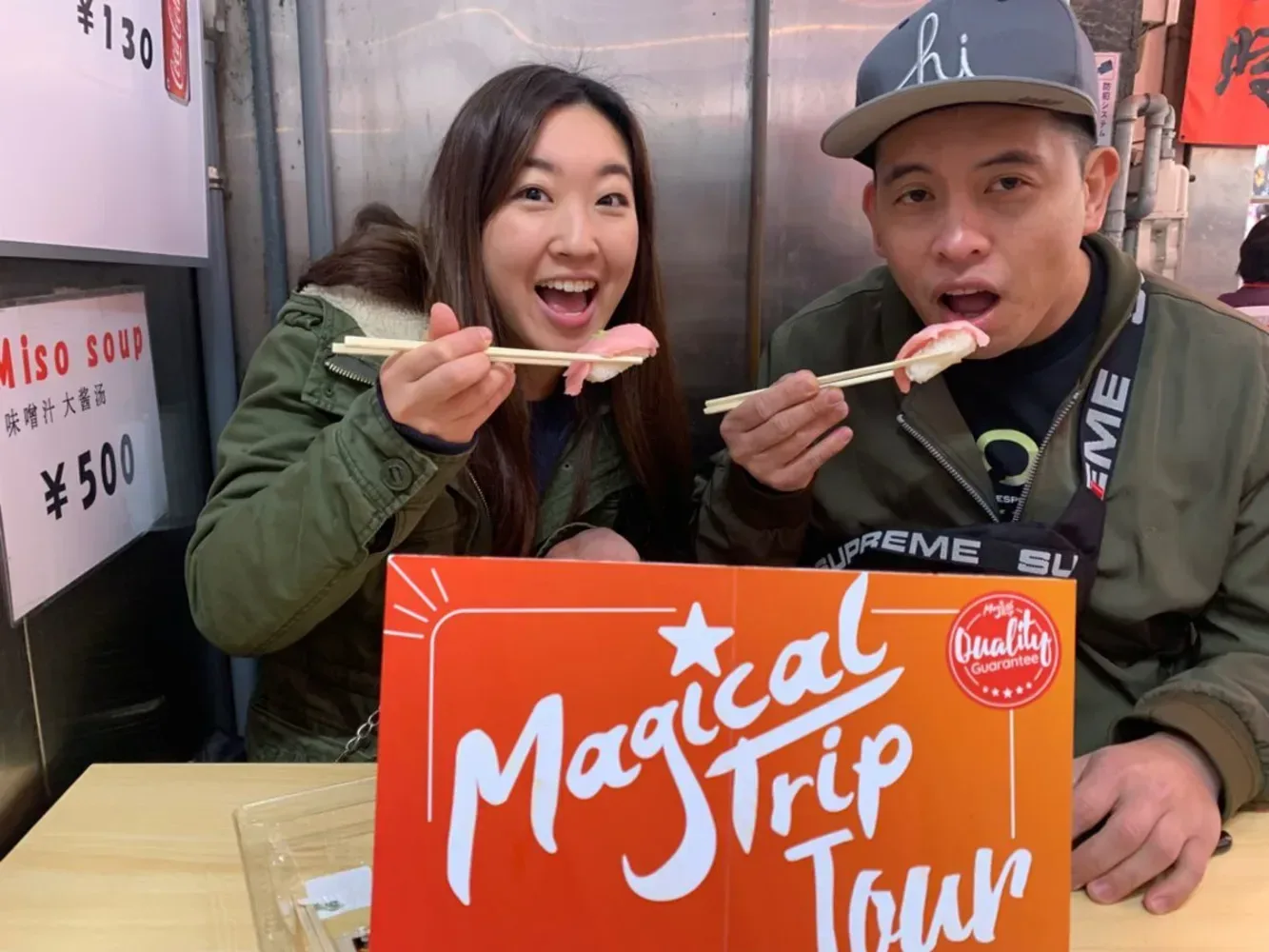
This 2-hour tour centered around the historic Kuromon Market, which has over 100 years of history, costs $41.32 per person.
You'll enjoy food from 4-5 carefully selected shops among over 130 establishments. Experience the atmosphere of Osaka's "kitchen" in this market where locals shop daily, lined with family-owned traditional shops. You can also find unique souvenirs like Japanese cooking utensils and dishware in Dougu-suji, and visit the lively Dotonbori area.
More than 2,000 people have participated in this tour, and vegetarian options are available (advance notice required). Private tours are available for those with mobility concerns. Free cancellation is available up to 24 hours before, and guides will email you photos taken during the tour afterward. This tour is perfect for food enthusiasts who want to experience a local atmosphere.
Details here: Kuromon Market Walking Street Food Tour in Osaka
These two tours each offer unique experiences. The Dotonbori-Shinsekai tour lets you taste local specialties in tourist areas, while the Kuromon Market tour immerses you in the energy of a local market. Both tours come with English-speaking guides and offer special Osaka experiences that you can't get through regular sightseeing alone.
Osaka's winter, while not snow-covered, is a wonderful season filled with unique charms.
Fantastic illumination events like the Festival of Lights and Osaka Castle Illuminage beautifully color the winter nights.
Traditional events like Hatsumode and Toka Ebisu offer valuable experiences where you can feel Osaka's culture and history firsthand.
I hope you'll visit Osaka during this special season and create your own wonderful memories!
